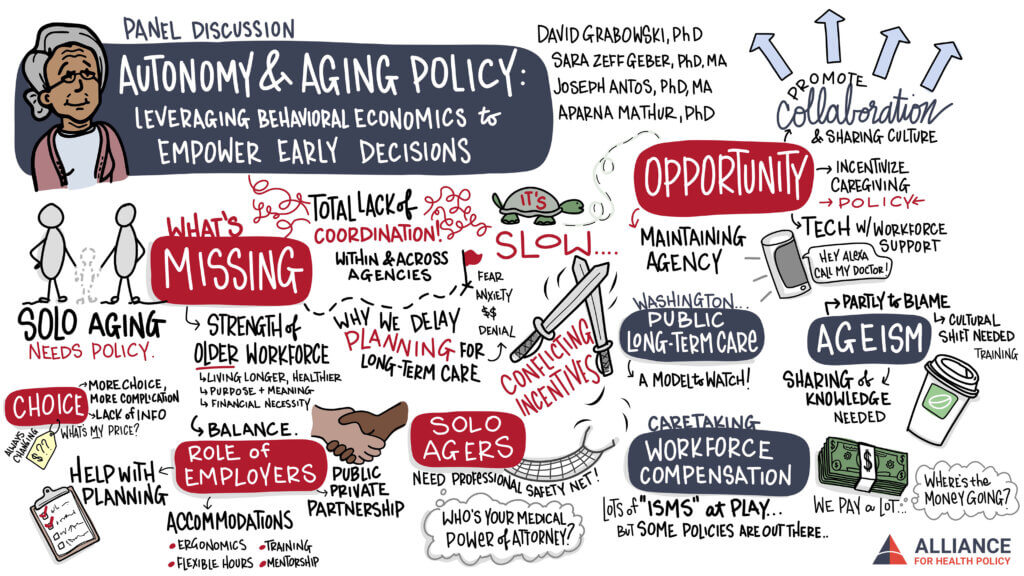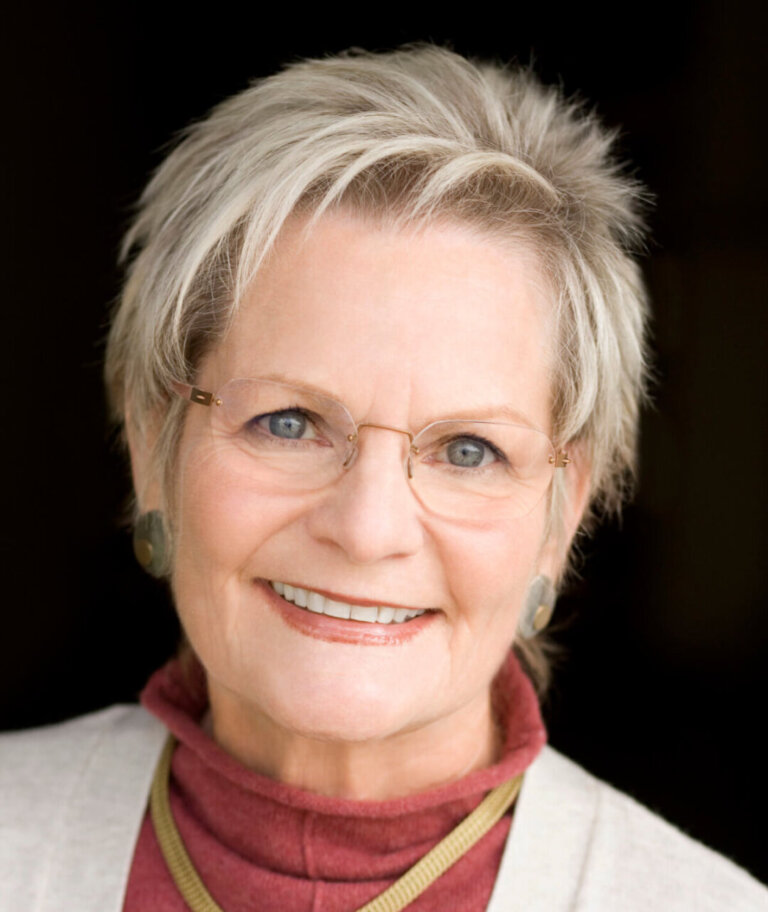Panel 3 – Autonomy and Aging Policy: Leveraging Behavioral Economics to Empower Early Decisions

The earlier we plan, the better we age. But too often, essential conversations about caregiving, long-term care, and serious illness happen too late. This panel brought together leading experts, including first-hand perspective from a solo ager, to explore how behavioral economics, policy innovation, and health system design can inform policies that help individuals make key choices before options narrow. This discussion offered actionable insights for policy leaders seeking to promote autonomy, reduce downstream costs, and strengthen support for an aging population.
By the end of this session, participants were able to:
- Understand key behavioral economics principles that influence aging-related decision making.
- Recognize how policy can promote early planning for aging, caregiving, and long-term care.
- Gain a deeper understanding of behavioral economics.
- Appreciate unique challenges faced by solo agers and other underrepresented groups in aging planning.
- Explore opportunities for federal programs and health systems to empower people to age with greater dignity, autonomy, and control.
Speakers
- David Grabowski, Ph.D., Professor, Harvard Medical School (Moderator)
- Joseph Antos, Ph.D., M.A., Senior Fellow and Wilson H. Taylor Scholar in Health Care and Retirement Policy, American Enterprise Institute (AEI)
- Aparna Mathur, Ph.D., Senior Manager, Economic Policy, Amazon
- Sara Zeff Geber, MA, Ph.D., Certified Retirement Coach, Speaker, Author, and Consultant, LifeEncore
Speakers

David Grabowski, Ph.D.

Joseph Antos, Ph.D.

Aparna Mathur, Ph.D.
